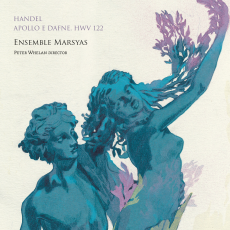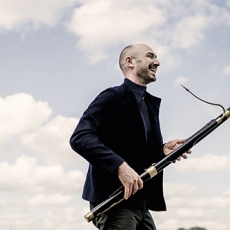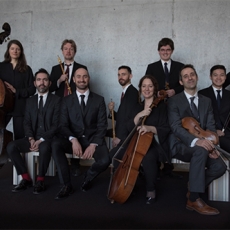Ensemble Marsyas - Handel: Apollo e Dafne - Gramophone
A quick glance down the list of performers tells you all you need to know about Ensemble Marsyas. From leader Cecilia Bernadini and Alec Frank-Gemill on horn to first oboe Katharina Spreckelsen and Thomas Dunford on theorbo, this is an orchestra of soloists - many of them section leaders of the Scottish Chamber Orchestra. Together with director Peter Whelan they make showstoppers of the ‘warm-up' instrumental numbers on their latest recording of Handel's Apollo e Dafne.
Running to nearly 25 minutes, the Overture to Il pastor fido (substituted here for the cantata's own, now lost) is an unusually extended affair - a standalone suite in all but name. The variety of its six movements offers a lyrical aria for oboe, some fine bassoon sallies in the Allegro (gleefully raw and sonorous here) and a flash of expressive solo harpsichord in the second Largo, all stylishly rendered by the ensemble. Even better are the two arias for wind ensemble (HWV410 and 411) that follow - the first an ingenious and highly coloured reimagining of material better known as ‘Sono i colpi della sorte' from Rodelinda, in which pairs of horns and oboes lead a stately march, and the second pitting the two pairs of instruments against one another in amiable and occasionally raucous rivalry.
The cantata Apollo e Dafne concentrates Handel's melodic invention into a swift retelling of the Greek legend of a lustful god's pursuit of an innocent nymph. One of Handel's most-recorded works, notable previous pairings in this vocal two-hander have included Michael Chance and Nancy Argenta, Thomas Hampson and Roberta Alexander and - most recently - the Gramophone Award-winning combination of Roberta Invernizzi and Thomas Bauer. Here Callum Thorpe - that rarest and most exciting of things, a genuine young bass rather than a baritone with low notes - is a little outsung by Mhairi Lawson's Dafne, a nymph whose agile coloratura and full-voiced recitative does little to suggest a helpless victim. Her exquisite entrance aria, ‘Felicissima quest'alma', barely touches the ground, so lightly spun are its phrases. If Thorpe and Lawson can't quite match Bauer and Invernizzi for vocal poise and dramatic immediacy, this is still a recording worth buying for the colour and quality of the orchestral playing.


